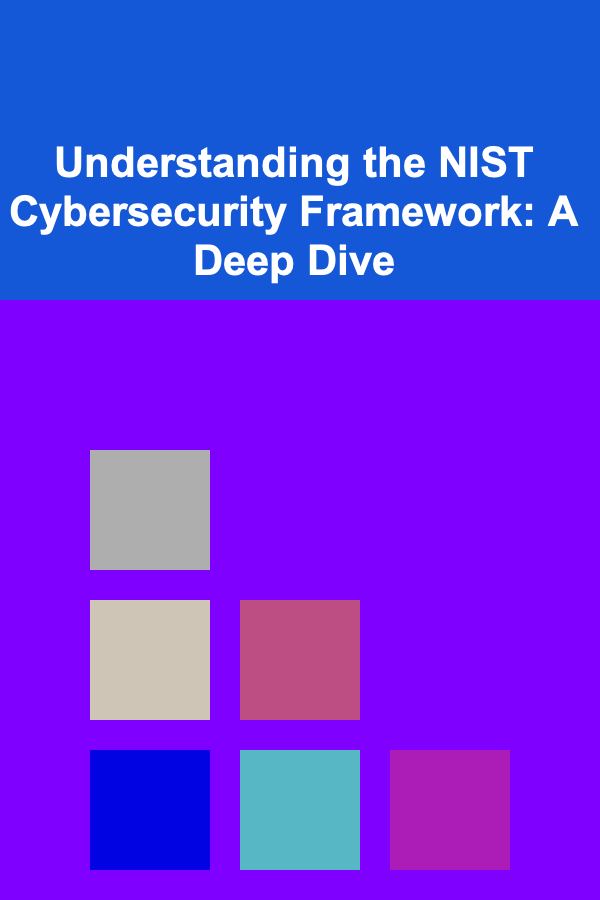
How to Use Blockchain for Real Estate Transactions
ebook include PDF & Audio bundle (Micro Guide)
$12.99$11.99
Limited Time Offer! Order within the next:

Blockchain technology has emerged as a revolutionary tool that has found its application across various sectors. One of the most promising and transformative areas where blockchain is making an impact is in the real estate industry. Traditionally, real estate transactions have been encumbered with layers of intermediaries, hefty transaction fees, paperwork, and potential for fraud. However, blockchain has the potential to streamline these processes, reduce fraud, and make real estate transactions more efficient, transparent, and secure.
This article delves into the key aspects of how blockchain can be used for real estate transactions, including its benefits, challenges, real-world use cases, and the future of blockchain in real estate.
What is Blockchain Technology?
At its core, blockchain is a decentralized, distributed digital ledger that records transactions across multiple computers in a way that ensures the security, transparency, and immutability of the data. Each block in the blockchain contains a record of transactions, and these blocks are linked (or chained) together, forming a chain.
Blockchain is most commonly associated with cryptocurrencies like Bitcoin and Ethereum, but its applications extend far beyond that. Blockchain's ability to create secure, tamper-proof records without the need for a central authority makes it an attractive technology for industries where security and transparency are paramount---such as real estate.
The Challenges in Traditional Real Estate Transactions
Before exploring how blockchain can improve real estate transactions, it is important to understand the challenges of traditional processes:
1. Paperwork and Administrative Burden
Real estate transactions often require a substantial amount of paperwork, including contracts, deeds, titles, and property inspections. This paperwork needs to be verified and signed by multiple parties, which can lead to delays and inefficiencies.
2. Multiple Intermediaries
The real estate process involves many intermediaries such as agents, brokers, notaries, legal professionals, and financial institutions. Each of these entities typically charges a fee, which increases the cost of the transaction and adds complexity.
3. Fraud and Security Risks
Real estate transactions are prone to fraud, especially with regard to ownership verification. Title fraud, for example, involves fraudulent claims of ownership and can be a significant problem in traditional systems where records are stored in a central database that can be tampered with.
4. Lack of Transparency
The traditional real estate market often lacks transparency in terms of pricing, property history, and legal status. This lack of transparency can lead to distrust between buyers and sellers and complicates decision-making processes.
5. Slow Transaction Times
Real estate transactions can be slow, often taking weeks or even months to complete due to the various verification steps required. This can cause frustration and result in missed opportunities for buyers and sellers alike.
How Blockchain Can Solve Real Estate Challenges
Blockchain can address many of the challenges mentioned above by providing a secure, transparent, and efficient way to conduct real estate transactions. Let's explore the key ways in which blockchain technology can be applied to real estate:
1. Decentralized Property Records
One of the most important applications of blockchain in real estate is the creation of decentralized property records. Currently, property ownership and transactions are tracked by centralized government databases or private organizations. Blockchain can create a decentralized ledger that securely stores property ownership records, eliminating the need for intermediaries and reducing the potential for fraud.
In a blockchain-based system, every property transaction (buying, selling, leasing, etc.) is recorded in a transparent and immutable way, ensuring that ownership history is easily accessible to all parties involved. This can significantly reduce disputes over property ownership and provide greater confidence in the accuracy of property records.
2. Smart Contracts
Smart contracts are self-executing contracts with the terms of the agreement directly written into code. These contracts automatically execute and enforce the terms of an agreement once certain predefined conditions are met. In the context of real estate, smart contracts can automate various aspects of a transaction, such as property transfers, payment schedules, and lease agreements.
For example, a smart contract could automatically transfer ownership of a property once the buyer has made the required payment. This eliminates the need for middlemen, reduces the time and cost associated with traditional contract enforcement, and minimizes the potential for human error or fraud.
3. Tokenization of Real Estate
Tokenization is the process of converting ownership of real estate into digital tokens that represent shares in a property. These tokens can then be traded or sold on a blockchain platform. Tokenization has the potential to democratize real estate investments by allowing smaller investors to participate in property ownership.
For instance, instead of buying an entire property, an investor could purchase a fraction of a property through tokenized shares. This opens up real estate investment opportunities to a much wider pool of investors, making the market more accessible and liquid.
4. Increased Transparency
Blockchain technology enhances transparency by providing an immutable and public ledger of all property transactions. Every transaction is recorded on the blockchain in a way that is publicly verifiable, allowing anyone to track the history of a property, including previous owners, transaction dates, and sales prices. This transparency can reduce disputes and increase trust in the real estate market.
Additionally, blockchain can be used to verify other critical information, such as the legitimacy of property deeds, building permits, and compliance with zoning laws. This transparency streamlines the due diligence process and allows buyers to make more informed decisions.
5. Improved Security
Blockchain's decentralized nature ensures that data is stored across multiple nodes, making it virtually impossible to alter or tamper with the records. In traditional systems, a centralized database is a prime target for hacking or fraudulent activities. Blockchain's cryptographic security protocols ensure that property records are protected from fraud, hacking, and other malicious activities.
Furthermore, blockchain's ability to provide secure digital identities means that only authorized parties can access sensitive information. This reduces the risk of identity theft and ensures that personal data is kept safe throughout the transaction process.
6. Faster Transactions
Blockchain can streamline the entire real estate transaction process. The use of smart contracts and automated processes reduces the need for manual intervention and accelerates transaction times. Property transfers, payments, and document verification can all be done almost instantaneously, compared to the traditional process that can take weeks or even months.
For example, blockchain-based title transfers can happen in real-time, and payments can be processed immediately through cryptocurrency or digital payment systems. This eliminates the delays caused by banks, legal reviews, or document processing.
Real-World Use Cases of Blockchain in Real Estate
Several projects and platforms are already exploring the potential of blockchain in real estate transactions. Some notable examples include:
1. Propy
Propy is a global real estate marketplace that leverages blockchain technology to simplify international real estate transactions. Propy allows buyers, sellers, and brokers to complete entire real estate transactions on the blockchain, from signing agreements to transferring funds and ownership. Propy uses blockchain to secure property titles, verify identities, and automate the contract execution process.
2. RealT
RealT is a platform that allows users to invest in tokenized real estate properties. By tokenizing properties, RealT makes it possible for fractional ownership, allowing investors to purchase shares in a property. These tokens represent real estate ownership, and holders receive rental income proportional to their share of ownership.
3. ShelterZoom
ShelterZoom is another platform that uses blockchain and smart contracts to facilitate real estate transactions. ShelterZoom's digital platform allows users to create and execute binding agreements, make offers, and sign contracts using blockchain technology. This platform eliminates the need for intermediaries, reducing transaction costs and improving transparency.
The Future of Blockchain in Real Estate
As blockchain technology continues to evolve, its impact on the real estate sector will likely expand. Some key trends and developments to watch for in the future include:
1. Government Adoption of Blockchain
Governments and regulatory bodies are increasingly exploring the use of blockchain to manage property records and reduce fraud. Some countries, such as Sweden and the United Arab Emirates, have already begun experimenting with blockchain-based land registries. As more governments adopt blockchain technology, the real estate industry will benefit from enhanced security, transparency, and efficiency.
2. Integration with Other Technologies
The integration of blockchain with other emerging technologies, such as artificial intelligence (AI) and the Internet of Things (IoT), will further enhance the efficiency and functionality of real estate transactions. For example, AI can be used to analyze blockchain data to predict market trends, while IoT devices can monitor property conditions and trigger smart contract executions.
3. Wider Tokenization of Assets
As the concept of tokenization becomes more widespread, more real estate assets will be tokenized, allowing investors to own fractions of properties. This will make real estate investment more accessible to a global audience and increase liquidity in the market.
4. Global Real Estate Marketplaces
Blockchain-based platforms could potentially create global real estate marketplaces that enable seamless cross-border transactions. These platforms would allow users to buy, sell, or lease properties in any part of the world, with blockchain providing the necessary security and transparency.
Conclusion
Blockchain technology holds immense potential for transforming the real estate industry. By providing a secure, transparent, and efficient way to conduct property transactions, blockchain can address many of the longstanding challenges in real estate, such as fraud, paperwork, and slow transaction times. As adoption of blockchain in real estate grows, we can expect a more accessible, streamlined, and trustworthy real estate market for buyers, sellers, investors, and regulators alike.

How to Decorate a Small Apartment on a Budget
Read More
How to Design a User-Friendly Interface for Your Mobile App
Read More
How to Soundproof Your Home Theatre Room
Read More
Understanding the NIST Cybersecurity Framework: A Deep Dive
Read More
Bathroom Feng Shui: Managing Draining Energy
Read More
10 Tips for Visualizing Inspirational Quotes Effectively
Read MoreOther Products

How to Decorate a Small Apartment on a Budget
Read More
How to Design a User-Friendly Interface for Your Mobile App
Read More
How to Soundproof Your Home Theatre Room
Read More
Understanding the NIST Cybersecurity Framework: A Deep Dive
Read More
Bathroom Feng Shui: Managing Draining Energy
Read More